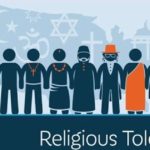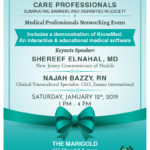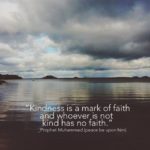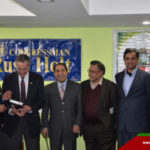By Mohammed Khaku
January 14, 2015
No, it’s not the Muslim Christmas. Or the Muslim New Year. I have never put lights on my house or placed a tree in the family room.
Nevertheless, it is a very happy time for me and for Muslims. It started on Wednesday, as Muslims all over the world celebrate the birthday of the last messenger of God, the Prophet Mohammed, for one full week. The whole week’s celebrations are known as Milad-un-Nabi in Arabic.
Now, Muslim fundamentalists insist that celebrating this day is an “innovation” or bida’h. They criticize Muslims celebrating this day because the Prophet never celebrated his birthday.
Indeed, it is not recorded that the Prophet Mohammed ever celebrated his birthday. Yet, as a Muslim, how can I not be happy about the Prophet’s birthday? On that day, the Lord sent into the world his last messenger to take me out of the darkness into the light. On that day the birth of the man who would bring me my faith.
How can I not celebrate that? How can I not be happy about that? Muslims show their joy and happiness over the Prophet’s birth in a variety of ways: some sing songs (Nasheed) about him; others pass out sweets and gifts to children, and many hang lights in their houses and mosques.
Mohammed was born in Mecca, Arabia, in the year 570. He was a descendant of the prophet Abraham. Orphaned at age 6 and brought up by his grandfather and uncle, Mohammed received his first revelation at 40, through the angel Gabriel, and continued to receive revelations for 23 years on the topics ranging from oneness of God, life after death, stories of earlier prophets, morality and social justice. All of these revelations became collectively known as the Quran.
Prophet Mohammed created a model government based on justice and human rights. He established the constitution, or Charter of Medina, in the year 622. It applied to 10,000 citizens living in Medina at that time.
Remarkably the population of Medina consisted of non-Muslim Arabs, Jews and Muslims, who were a minority of the population. Prophet Mohammed penned the Charter of Medina as a minority sovereign. His goal was to govern a multireligious, pluralistic society in a manner that allowed religious freedom for all of them. The charter consists of 47 clauses, which set forth the formation of a sovereign nation with a common citizenship for all communities. The charter protects fundamental human rights for all citizens, including equality, cooperation, freedom of conscience and freedom of religion. In short, the Charter of Medina was the first document in history to establish religious freedom as a fundamental constitutional right.
The essence of this philosophy is expressed in one of the Prophet’s sayings: “Nine things the Lord has commanded me: Fear of God in private and in public; justness, whether in anger or in calmness; moderation in both poverty and affluence; that I should join hands with those who break away from me; and give to those who deprive me; and forgive those who wrong me; and that my silence should be meditation; and my words be remembrance of God; and my vision be keen observation.”








